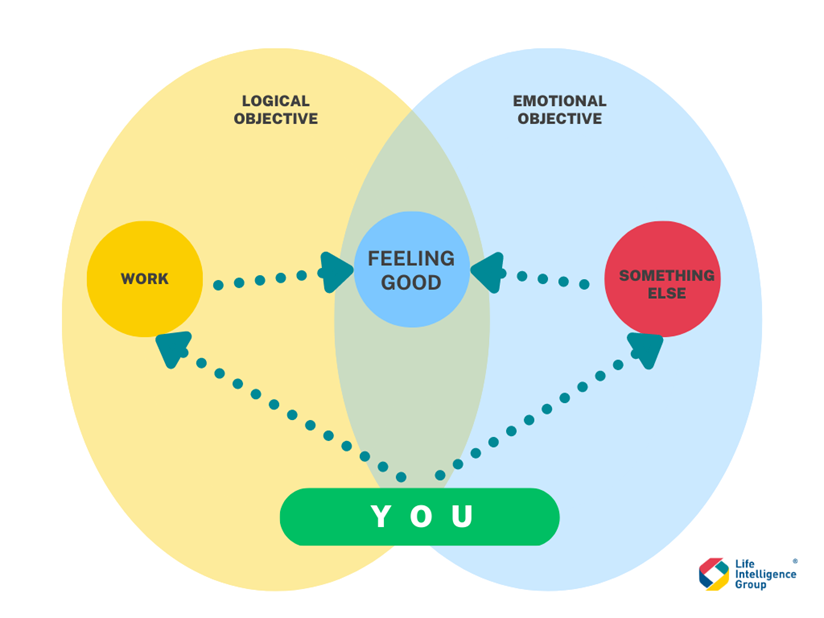7 Realistic Time Management Tips to Beat Procrastination
Beating procrastination in a world where everything is becoming increasingly demanding is a must. Unfortunately, if you’ve been struggling with it for a long time, it can be hard to shake off the habit. You can read all the articles you want and try as many time management tips as you can. But if you don’t address the root of the problem, it will keep sabotaging your efforts to improve.
That’s why in this article, we’ll take a look at why we procrastinate first and give you some real advice that this writer has personally tested and proved to be effective.
This is why you procrastinate
To beat procrastination, you need to understand why you do it in the first place.
Let’s say it’s a Sunday and you have a paper due tomorrow. Just thinking about the paper makes you uneasy. And why wouldn’t it? For starters, you don’t know how to do it properly. You know it will require some research. And probably the whole thing will take up a good part of your day.
Emotions over Logic
This feeling of discomfort towards the task is the most common cause of procrastination. This discomfort triggers the limbic system, the part of the brain responsible for our emotional responses. The limbic system is older than the neocortex, the part of the brain that controls logical reasoning and decision-making.
For reference, the limbic system controls many of our automatic bodily functions, produces emotions like fear, anger, and pleasure in response to certain situations, and, in this context, helps us survive both physical harm and psychological upsets. Unfortunately for us, doing that dreaded paper can be considered a threat, albeit a mild one.
This is where the battle between logic and emotions takes place. For most procrastinators, the limbic system often wins. The discomfort causes procrastinators to engage in what is called mood-repair behavior or occupying themselves with things that will help them feel better. This is why you play video games, watch movies, or go out with friends instead of doing whatever it is you're supposed to.

The real mood repair, however, can only happen if you tackle that one task that you’ve been avoiding. Mood repair activities may feel good for a few hours but they’re often quickly replaced with guilt after a while.
Before you beat yourself up, remember that engaging in mood-repair activities can sometimes happen unconsciously. However, knowing the hidden mechanisms behind this behavior can hopefully help you be more mindful of your choices in the future.
Present me over Future Me
Logic tells us that doing the difficult task right now would benefit us in the future. If you start working on that paper right now, you’d have more time for research and more time for writing, resulting in quality output, overall.
The only problem is that it’s hard for us to care about the future.
One study found that we actually see our future selves not as ourselves but as different people. This explains why it can be so hard to convince ourselves to sacrifice our present comforts for the convenience of someone we consider to be a stranger.
It’s the same reason that makes us promise to do more in the future in exchange for some convenience in the present (e.g. Promising a friend to meet up next Saturday instead so you can stay at home all day).
Related: Realistic Tips on How To Deal with Procrastination

Now that you know why procrastination happens, it’s time to act on it. Here are some techniques that I’ve personally found effective in beating self-defeating procrastination.
-
Make it easy to start
More often than not, the hardest part of the job is getting started. The first step is the crucial part. But once you get in the groove, it gets easier to ride the momentum and make progress.
The following strategies can help you break that psychological barrier to kicking things off right away.
a) 2-minute rule
This rule states that whatever you’re going to work on, you need to start it in two minutes. Placing a deadline on your start time can put enough positive pressure to urge you to get started.
b) Timer method
Set up a timer for five to ten minutes. Within those minutes, you don’t need to work on the task but you also cannot work on anything else. More often than not, you’ll start working on the task than do nothing at all.
c) Get-in-the mindset method
This method is helpful for completing tasks that have already been started but you just can’t seem to finish. Let’s say you’ve already written the first chapter of your paper. In that case, simply pull up the draft that you’ve already started and just look at it for a few minutes. Before you know it, you’ll find yourself adding a thought here and there, editing a few sentences, and drafting the next paragraph for the next chapter.
-
Bait yourself with a reward
As mentioned earlier, humans find it hard to care for our future selves because we think of them as separate people. That’s why we find it so hard to give up our present conveniences in favor of some future benefit. Instead, we are more motivated by things that can make us feel good at the moment.
Knowing this, you can pair a difficult task with an instantaneous reward. For example, a six-chapter paper can be divided into three parts. After successfully writing two chapters, reward yourself with food or other activities that you enjoy doing. It can be watching a short YouTube video, chatting with a friend, or online shopping.
Just try not to engage in social media while in-between tasks or until the whole project is completed as it can clandestinely drain your energy and make you too tired to go on.
You may also choose to give yourself a big reward at the end of the project, but if the scope of the project is too large, small rewards after incremental progress are more appealing to the instant-gratification-loving self.

-
Reframe it as a challenge
Let’s be honest, work has a bad reputation. Perhaps it’s even safe to say that most people are not too keen on the idea of working. Work implies long hours of concentration, annoying coworkers, conceited bosses, or hours and hours of unrewarding efforts.
The Slovenian philosopher Slavoj Zizek once said: “the way we perceive a problem can be itself part of a problem.” This is what happens when we hear the word work. Anything related to work comes readily tainted with negative emotions so that we already lose before we even begin.
An effective strategy against this mindset is to reframe how we think about work from the get-go. Instead of looking at work as work, perhaps it helps to think of it as a game or a challenge. Reframing the “problem” this way lifts off those negative associations that stop you from tackling the task head-on.
This idea is backed up by a study that involves the subjects being asked to do a puzzle. The puzzle task was framed as an assessment task called “cognitive evaluation”. After being instructed to complete the puzzle, the subjects were allowed some time to play the game Tetris.
In this setup, those who were more likely to procrastinate spent a long time playing the game and avoiding the puzzle task. However, when the researchers introduced the puzzle test as a game, the likely procrastinators were as eager to get into it as all the others.
This goes to show that how we view the task itself can impact our willingness to work on it.
-
Avoid it, but…
Sometimes, procrastination just wins and you have to let it. Otherwise, wallowing in self-pity and feelings of self-inadequacy can breed an unhealthy sense of self.
So the next time procrastination wins, don’t beat yourself up for it. Inevitably, you will feel guilty about avoiding important work. What you can do to assuage that uncomfortable feeling is to try to find a smaller, more doable task from your To Do list. This way you will not really be wasting your time. Although the big task still needs to be done, you will have something to show for yourself at the end of the day and that will help you cope.

-
Work on something more important
This is another version of the productive procrastination strategy explained above. But instead of working on smaller, low-output tasks, try to spend your time procrastinating to work on a high-value output task.
Is there a special project you’ve always wanted to work on? Are you learning a new skill? If you can’t get yourself to work on that one task you’re supposed to, redirect your focus instead on a bigger, more important task that is not really urgent.
You might ask: will that not make me procrastinate on the bigger task too?
Speaking from experience, your active avoidance of one task can be a surprising motivator to work on the other.
Related: Realistic Tips on How To Deal with Procrastination
-
Work in time blocks
This strategy is more famously known as the Pomodoro technique. Using a timer, separate your work time into 25-minute focus blocks with 5-minute breaks in between. Within those 25 minutes, work on nothing else but the task. Then once the 25-minute mark is over, you can do whatever you want for 5 minutes. Repeat the pattern for three more Pomodoro cycles and after the fourth, give yourself a longer break (15 to 30 minutes).
The Pomodoro technique works because:
- 25 minutes is short enough to get into work mode but not long enough to exhaust you
- The breaks help you refresh throughout the day and lower the recovery time needed after a long day at work
- Small deadlines provide positive pressure to help you produce incremental progress
-
Turn it into a to-do list
Many people are intimidated by a task because they don’t (or only have a vague idea of) how to do it. By breaking down a task into its smaller, component parts, you eliminate the complexity of the problem and are able to focus on each segment.
Once you break down the task into actionable parts, add a deadline for each component task. This helps you concentrate on completing one small part and the incremental progress you make will help motivate you to keep going.

Conclusion
Procrastination is a hard habit to break but by understanding what's causing it and learning the right time management strategies that work for you, it is possible to overcome it. Take the time to try out the techniques discussed in this article and see which ones work for you.
More importantly, start thinking small. Instead of finishing a task all at once, focus on finishing one small step first. This allows you to still make progress on your work until you gradually get your rhythm. Start small with TaskSpur, a life management tool that makes it easy for you to track all your important tasks and goals in one place. Check it out!
Download TaskSpur on Android | Download TaskSpur on your iPhone